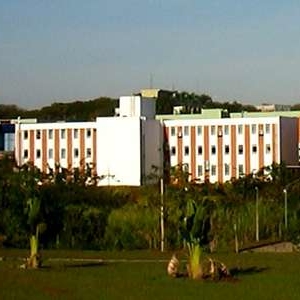Javascript message
This site uses javascript. If javascript is disabled in your browser, some functionality may be impaired.

Exploring the limits in Brazil
Separation Products has had a long collaboration with the group of Professor Cesar Santana at the Universidade Estadual de Campinas in Brazil. Professor Santana and his group have produced several scientific papers in the field of large scale purification of enantiomers. We are now proud to give the readers of KromaNews a flavor of the work of Professor Santana's group and some nice pictures from the lovely group in Brazil.
The challenge: high throughput production of enantiomers for pre-clinical studies
A new project on preparative chromatography has been launched in Brazil trough the Bioseparations Laboratory, School of Chemical Engineering, Universidade Estadual de Campinas (UNICAMP). The main goal of the project is to produce new synthetic biologically active racemic mixtures, apply new chiral stationary phases and use a multi-column system to produce enriched and pure enantiomers in the scale of grams per day. The pure enantiomers can be applied for example in pre-clinical tests of new drugs.

Loading profiles of mitotane on Kromasil AmyCoat 10 μm, 10 x 250 mm
Continuous chromatography the efficient way
The combination of the VariCol separation procedure with new polyssaccharide–based stationary phases resulted recently in the purification of the enantiomers of the chiral molecule o,p’-dichlorodiphenyldichloroethane (a.k.a. mitotane), a chemotherapeutic drug used in the treatment of adrenocortical carcinoma.
Before the continuous separation can be performed, it is necessary to completely identify the chromatographic conditions for the target molecule separation on the actual chiral columns. Besides is shown the chromatographic behavior of the separation for several loadings of the mitotane racemic mixture in a semi-preparative column with 1 cm in diameter. These data are essential for the design of the continuous separation conditions in the VariCol system. Mitotane enantiomers with a productivity of 1 kg of enantiomer per kg of stationary phase and day (kkd) and purities above 98% were obtained with a solvent consumption around half of the amount required in an equivalent batch chromatographic process.
Stationary phases, equipment and human resources
Several polyssaccharide–based chiral columns have been used in the research activities, especially Kromasil AmyCoat and CelluCoat. Experimental setup includes a Novasep Lab Varicol continuous chromatographic system working on a production scale of up to 50 g per day. The VariCol process (variable column length) is an innovation of continuous units operated by the advance of feed and withdraw streams on an asynchronous mode. In this innovation the column length may vary between the process steps to optimize the usage of the stationary phase.
The laboratory activities are both rewarding and challenging because it requires detailed knowledge fundamentals of chromatographic techniques and many basic principles of chemical engineering. The enrollment encompasses graduate and undergraduate students as well as post-doctorate researchers.


